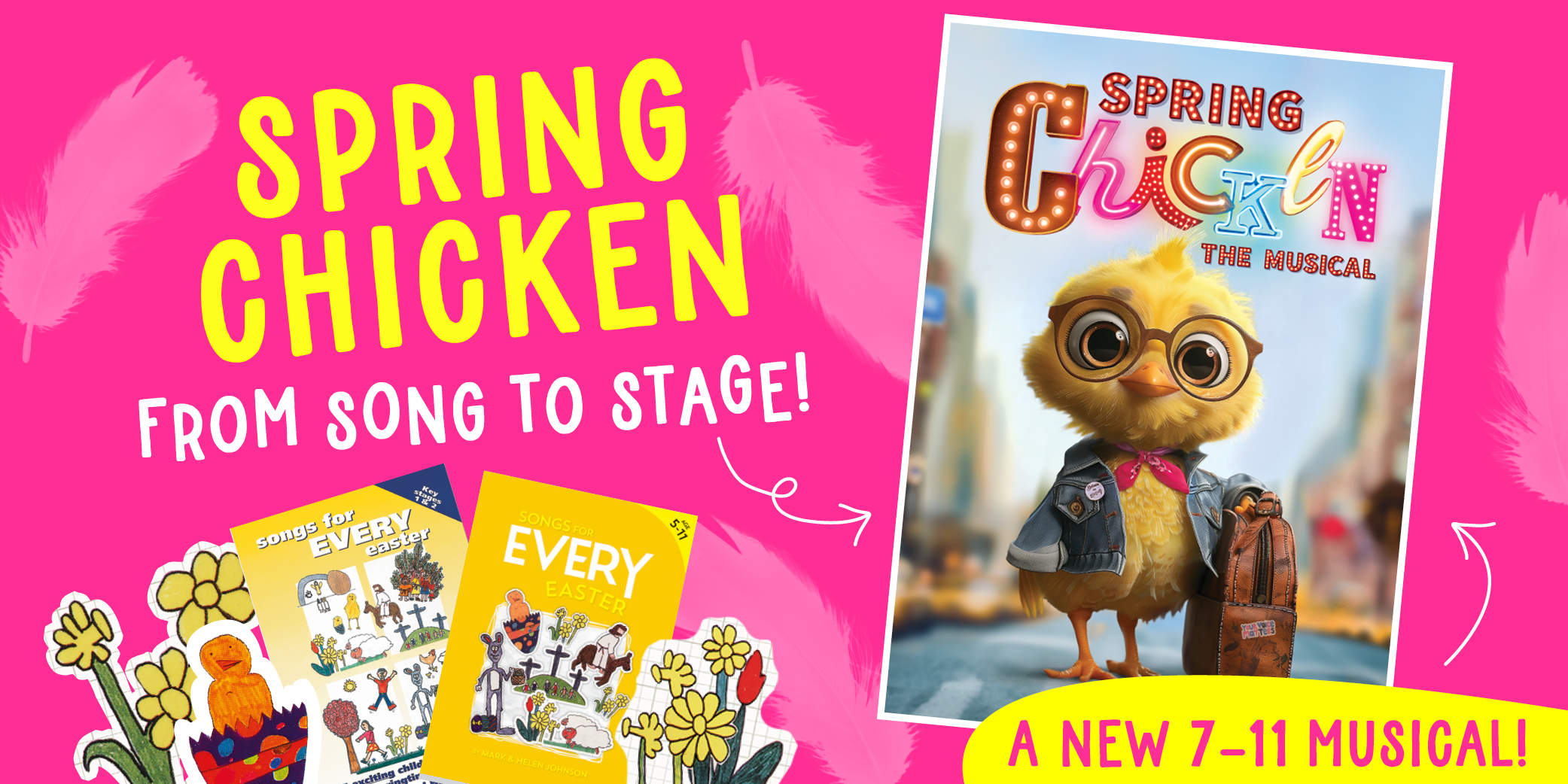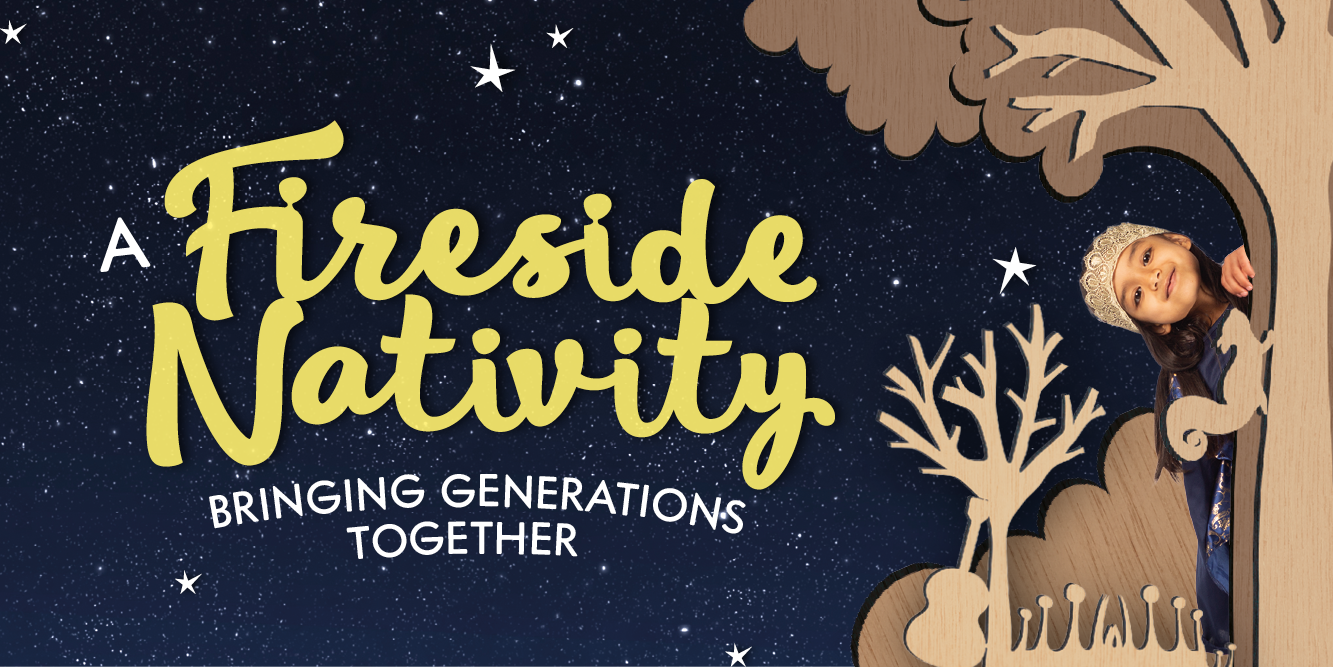
We were so excited to get an email from Alison McDonough, of West Rainton Primary School, telling us how the school were putting on a production of A Fireside Nativity with their local care home – and it was due to be filmed by BBC Songs Of Praise! Bringing people together is just one of the fabulous reasons we love producing nativities every year, so we were really pleased that Alison agreed to answer some of our questions, hopefully giving you an insight into what it takes to put on an event like this.
West Rainton Primary School is a small and traditional, rural village school on the outskirts of the city of Durham. It sits in the former mining communities of West Rainton and Leamside but has children attending from much further afield. The school community is rich in heritage and character and includes a large proportion of pupils from travelling communities. The school is the proud holder of Inclusion Quality Mark Flagship Status because of its relentless drive towards making the school experience the happiest and most enjoyable, successful time for all pupils. There is something exciting going on every day in our school and we’re still able to achieve great educational outcomes for all, as a result of this ethos.
The school’s relationship with Springfield Lodge Care Home goes back many years. I had my first weekend job there aged 15 and so was aware how much the interaction with younger generations meant to the residents. Different classes visit the home at least once a month, with activities ranging from cupcake decorating with nursery children, to wartime songs and sharing memories with Year 6s.
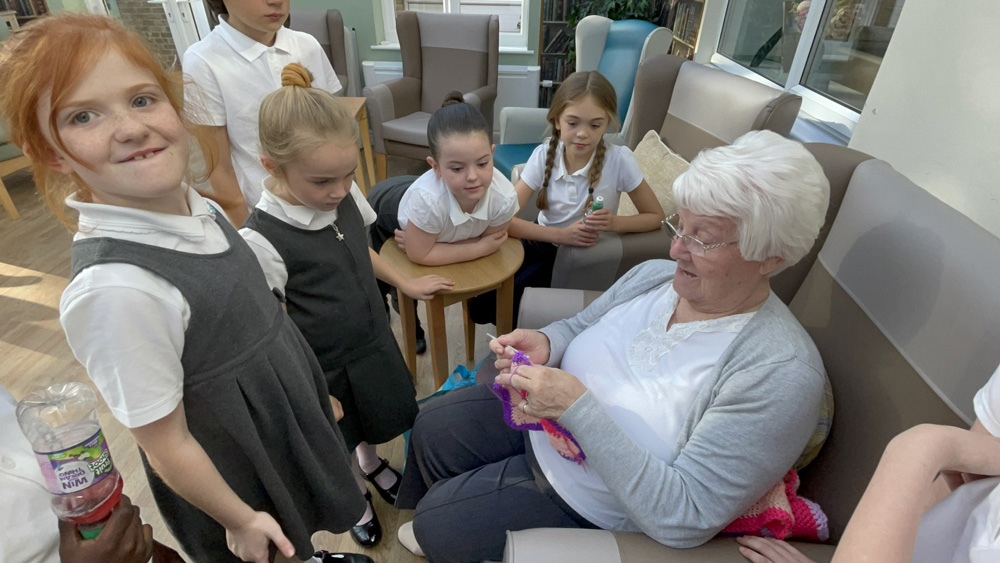
It was back in 2018, however, when the idea of a collaborative production was born! As a community, West Rainton and Leamside decided to embark on a journey to become dementia friendly and as such, each organisation trained its members in dementia awareness and came up with an action. The joint nativity play was our school’s action!
We were so glad to be able to bring back the joint nativity play in 2023 after a three-year break due to the ongoing impacts of the pandemic. 20 children from Years 2-6, along with ten residents from Springfield Lodge, are involved in working together to learn lines, songs and actions to perform in our local church, St Mary’s, for our community in December. This has also involved some visits to the care home simply for fun, such as the children encouraging the residents to take part in an exercise class to upbeat music, and on another occasion, to make elf cards together for Alzheimer's Society.
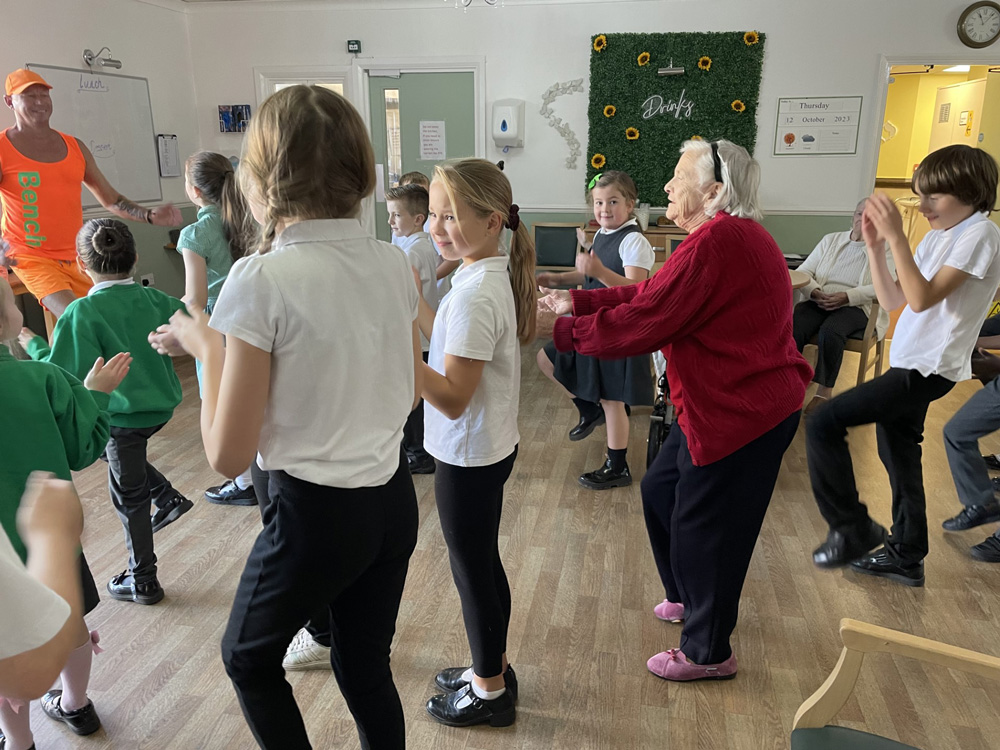
Key to the success and feel of the nativity play is the choice of script. In 2019, we performed A Midwife Crisis from Out of the Ark and themed it around the hit BBC show Call the Midwife as it is set in an era so familiar to those living with dementia. This year, A Fireside Nativity was the obvious choice with its theme of nomadic-style storytelling around the campfire and sharing of Christmas traditions which are timeless and heart-warming, such as leaving treats out for Santa or hanging a stocking by the fire. A Fireside Nativity is also visually beautiful, with a ‘roaring’ campfire, backdrop of forest trees and twinkling lights so it was exactly the image we wanted to create for the arrival of the TV cameras from BBC Songs of Praise.
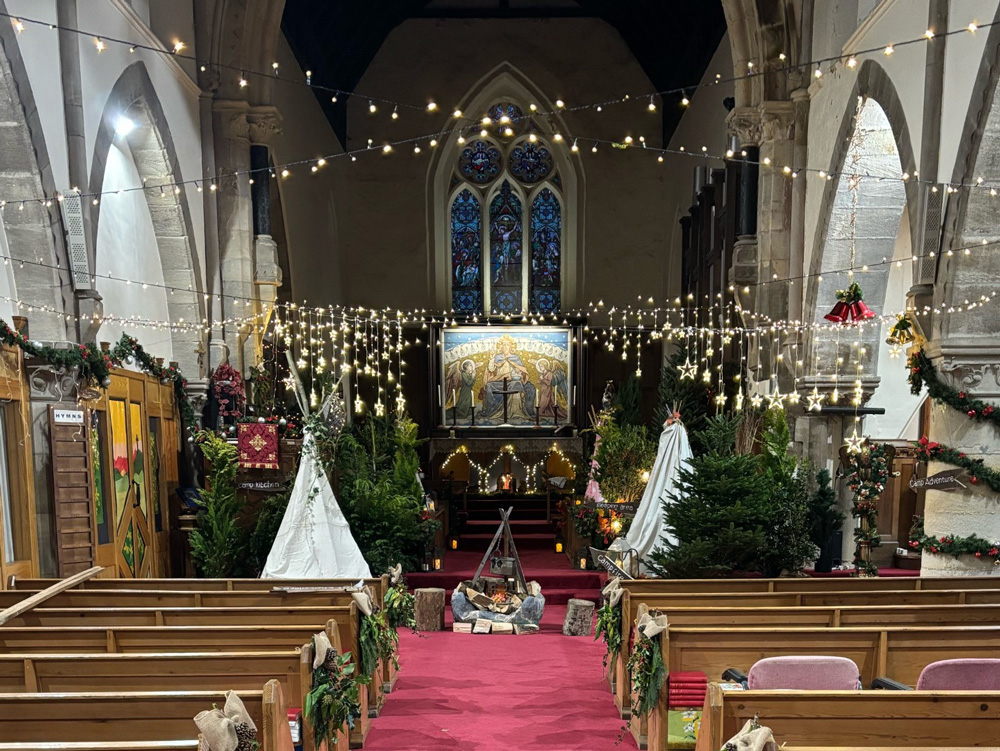
Nativities are important for children of all ages, whether that’s participating in them or being an audience member. For young children, participating in the nativity story ensures they are aware of and understand the importance of Christmas, and its messages of love, to Christians. As children get older, revisiting the nativity story allows them to further explore the more complex themes of the gospels such as the inclusivity of shepherds being the first to hear the good news from the angels.
A nativity play is something familiar to so many people. Everyone has memories of participating in one at school as a child: nobody forgets being the donkey, the star or Mary! Since doing the intergenerational nativity from 2018, so many community members have told us how much it means to them to be able to attend a nativity play when they no longer have a link to school. It seems to evoke a nostalgic warmth and comfort at Christmastime that is so very much appreciated.
Rehearsals have been a great deal of fun! Working with young children and people living with dementia has meant that every time we run through the script is different and that, fundamentally, is the charm of it. Early on in the process, I worked out that before we began each rehearsal, the children and residents needed a few minutes to just chat to each other about what had happened since they last saw each other. Going with a ‘relationships-first’ approach has been key to the success of the play. By the end of every practice, it’s impossible to not have the biggest smile on our faces!
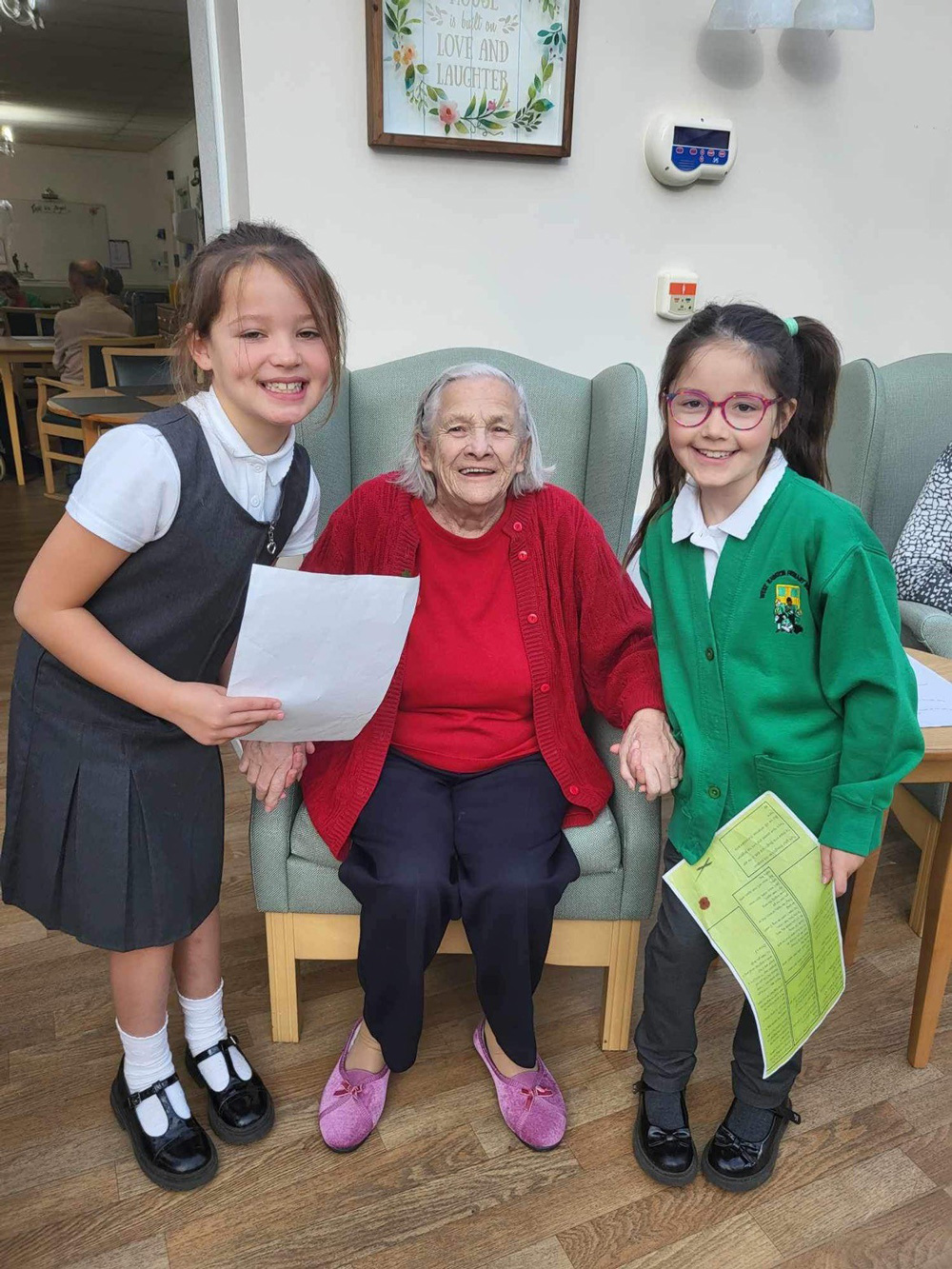
Props are quite minimal for this performance. We have enamel camping mugs for the first song (a sound-proofed box to place them in afterwards is a great addition!). We also have one child playing the guitar for ‘The Fireside Song’ to give it authenticity. In the song ‘We’re on a journey to Bethlehem’, our innkeepers hold clipboards with the three inns’ names on, to help with sequencing the lyrics. The only other prop is baby Jesus, in the manger, who is held by Joseph in the final scene and song ‘Down in Bethlehem’.
In terms of costumes, we stepped away from traditional nativity outfits and went for an obvious but casual approach to suit the camping theme. The angels, for example, are wearing fluffy white jumpers and either headbands or bobble hats in white. The three kings have hooded checked shirts that reveal their crowns when the hood is pulled up!
Don’t be afraid of asking for help or delegating jobs to others, too. It’s been amazing how many people have enthusiastically offered to help us – from our local garden centre loaning us 15 potted trees to make the ‘forest’, to a local transport company providing a minibus to get the residents to and from the church.
I’m not sure there are any nerves in the children or residents, but the fact that the nation’s Christmas was depending on us, through the Songs of Praise episode, certainly meant some nerves for me as director! It’s great that none of the performers feel it though, as they can then reflect the fun they’ve had throughout the project – which is exactly how it should be.
Within the ten older adults, we have angels, shepherds and innkeepers who are supported by their younger cast members. A team of us sat down with the script, from the outset, and allocated the lines that would have a familiarity for the adults such as the conversation at the beginning about making a cup of tea and the section where everyone compares their Christmas traditions.
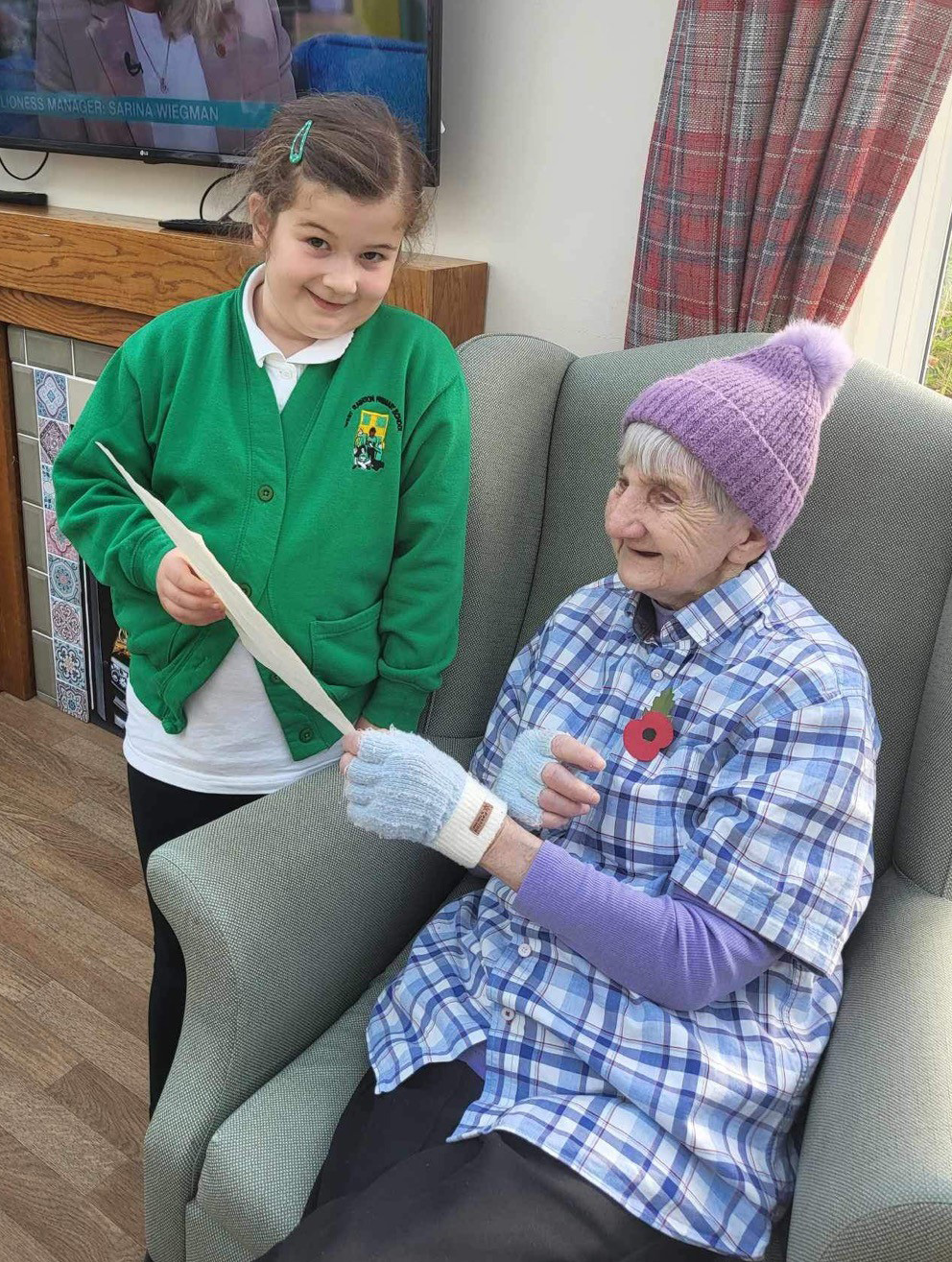
Our ‘grandfriends’, as the children call them, have their lines on strips of card and one child next to each of them to help them read it at the right time. This is just beautiful to observe as the children do this so selflessly and genuinely want the residents to be the stars of the show.
One of the residents, Irena, is from Poland originally and, through her dementia, she has lost her ability to speak in English. One pupil involved, Julia, also from Poland, was able to act as translator for Irena which gave her such a visible sense of freedom and relief to participate, that it brings tears to the eyes every time we see their friendship in action. Another resident, Charlotte, is never seen without her crochet hook, and over the weeks, she has taught many of the children, passing on her skills and expertise. On many of our rehearsals at the care home, visiting family members have told us how much the relationships mean to their loved ones. The activities coordinator at Springfield Lodge has said that the project has brought the residents involved to life, with a renewed spark and zest for living well with dementia. For the children, it has reduced the fear around ageing and related conditions, dispelling myths and providing them with positive opportunities to support others in their community.
Part Two coming soon!



